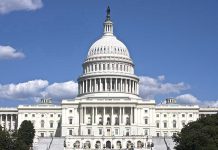
When a commercial jet becomes the latest casualty of street warfare, even the illusion of normalcy in Haiti’s skies evaporates, because when bullets hit a passenger plane, everyone’s sense of safety is grounded.
Story Snapshot
- Sunrise Airways halts all domestic flights after gunfire damages a plane near Port-au-Prince
- Incident highlights how escalating gang violence now directly endangers aviation in Haiti
- Disruption leaves passengers stranded and threatens business, humanitarian, and economic lifelines
- Airline vows not to resume flights until authorities can guarantee safety, with no timeline in sight
Gunfire in the Final Approach: When Crime Crosses the Runway
A Sunrise Airways aircraft on final approach to Port-au-Prince from Les Cayes was struck by gunfire. The round punctured the fuselage, but miraculously, no one onboard was injured. The decision from airline leadership was immediate and categorical: all domestic flights in and out of the capital were suspended, effective at once. For a nation already battered by violence, this marked an unprecedented escalation, one that forced Haiti’s last reliable air bridge to slam shut, with little warning and no clear reopening date.
Sunrise Airways’ official statement framed the move as an act of necessity, not choice. Until Haitian authorities could guarantee the safety of crews and passengers, operations would remain grounded. The airline’s crisis team, in close coordination with government and international regulators, began monitoring the situation hour by hour, providing public updates but refusing to speculate on when—or if—normal service might resume. The message was clear: the skies above Port-au-Prince were no longer beyond the reach of Haiti’s spiraling gang warfare.
Gang Control and the Collapse of Public Order
This attack did not occur in a vacuum. Over the past year, armed gangs have seized control of major neighborhoods and approaches to Toussaint Louverture International Airport, using violence not just to settle scores but to assert power over infrastructure. While previous incidents had targeted road convoys and airport perimeters, a direct hit on a commercial aircraft was a chilling new precedent—one that dramatically widened the circle of risk. The Haitian government, chronically under-resourced and outmatched, has struggled to regain control, with security forces often absent from the very areas surrounding the airport itself.
International travel advisories, including a US FAA ban on flights to Haiti, had already signaled the dangers, but Sunrise Airways’ decision was the first time a local carrier acknowledged that the conflict had metastasized into the airspace. The move stranded hundreds of passengers and crews, disrupted cargo and humanitarian operations, and sent a stark warning to anyone contemplating business as usual in the country’s skies.
Human and Economic Fallout: Who Pays the Price?
The immediate effect of the suspension was felt by travelers—businessmen, aid workers, and families—now forced to weigh the risks of overland travel through gang-controlled territory or simply abandon their plans. For many, the only viable north-south route in Haiti was suddenly gone. Airlines issued rebooking and refund offers, but commercial interests and relief missions faced indefinite delays. The broader economic consequences began to ripple outward: lost revenue for the airline, grounded tourism, and the slow strangulation of supply lines in a country already teetering on the edge.
Airline cancels all domestic flights after one of its planes hit by gunfire https://t.co/pKZHoeO1cr
— TheStreet (@TheStreet) November 25, 2025
Industry experts and aviation analysts described the incident as both a symptom and a warning. The targeting of a passenger jet—rare even in global conflict zones—signaled that gang power in Haiti now extended to the nation’s critical infrastructure. Some urged that suspending flights was the only responsible choice; others warned that the move would deepen the isolation of both Port-au-Prince and the regions it serves, making recovery even harder. For the government, the suspension underscored a loss of control with profound political ramifications, eroding public confidence and international credibility.
The Broader Meaning: When Security Fails the Skies
Airlines around the world have long faced the risks of flying in unstable regions, but direct gunfire at an approaching passenger plane is an inflection point. The incident at Port-au-Prince has already prompted industry-wide scrutiny and could set a precedent for carriers operating in other conflict zones. For Haiti, the grounding of Sunrise Airways is both a practical crisis and a potent symbol, a sign that lawlessness has reached a level where even the thin blue line of international aviation cannot hold.
As of November 25, the suspension remains in place, with no set date for resumption and little clarity on when, or how, safety might be restored. For now, the sky over Port-au-Prince is empty, a silent testament to a nation’s deepening crisis, and a warning to any who believe that borders, or runways, can hold chaos at bay.
Sources:
Travel and Tour World (Sunrise Airways official statement and context)
Economic Times (International news coverage)
Startup News (Incident details and timeline)


















